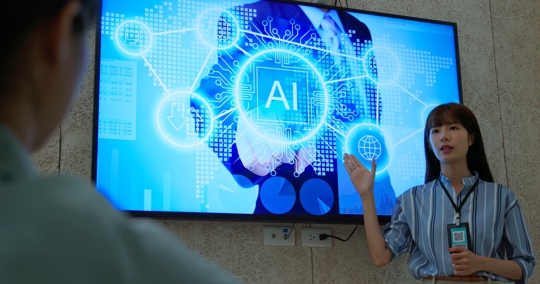As artificial intelligence (AI) becomes increasingly integrated into the workplace, California is taking a proactive stance to ensure its use aligns with anti-discrimination laws. The California Civil Rights Council recently issued new regulations governing the use of AI in employment decisions, including hiring, promotions, and evaluations. These regulations—set to take effect on October 1, 2025—amend the current framework of the Fair Employment and Housing Act (FEHA) and reflect California’s broader efforts to regulate workplace technologies.
Paul P. Cheng, Esq., a former prosecutor and a well-respected Southern California trial attorney, emphasizes that this development is part of California’s growing regulatory trend and urges businesses to prepare now to ensure compliance.
Key Provisions and Legal Implications
The California Civil Rights Department has raised concerns that automated decision-making systems may unintentionally perpetuate or amplify existing biases. These systems often rely on algorithms, statistical models, or machine learning to make employment-related decisions. The new regulations require that any use of such technology must comply with FEHA’s anti-discrimination protections and establish clearer employer responsibilities. The most notable provisions include:
1. Expanded Definition of “Employer” to Include Third-Party Vendors
The new rules broaden the definition of “employer” to include third-party vendors—such as staffing agencies and AI technology providers—who assist in hiring or screening candidates. If a vendor’s AI system results in discriminatory outcomes, the employer may still be held liable.
2. Stricter Recordkeeping Requirements
Employers must retain all data related to automated decision systems—including applicant or employee inputs and system-generated outputs—for at least four years. This requirement facilitates regulatory investigations into whether the use of AI may have resulted in discrimination.
3. Prohibition on Discriminatory Use of AI Based on Protected Characteristics
The regulations explicitly prohibit employers and vendors from using AI tools that adversely affect individuals based on protected characteristics, such as gender, race, or disability. For instance, an AI test that inadvertently screens out individuals with disabilities could be considered an unlawful medical inquiry under FEHA.
4. Compliance Measures May Serve as Legal Defense
Employers who proactively conduct anti-bias testing and make system adjustments based on the findings may use such efforts as a defense in the event of discrimination claims. In contrast, employers who take no compliance measures may face increased legal exposure.
What Should Employers Do Now?
Attorney Paul Cheng advises that although many aspects of the new regulations reinforce existing anti-discrimination laws, they introduce a clear framework for AI accountability in employment settings. To mitigate legal risks, businesses should:
- Audit Existing AI Tools - Assess current AI and automated decision systems for potential bias. Consider engaging legal and technical experts for a full compliance review.
- Establish Strong Recordkeeping Practices - Maintain complete documentation of all data used or generated by automated systems in accordance with the new four-year rule.
- Train HR and Management Teams - Ensure internal stakeholders understand the new legal obligations. HR professionals and leadership must be equipped to spot and prevent potential violations of FEHA.
A Turning Point in Tech and Employment Law
California’s new AI employment regulations mark a significant shift in how businesses are expected to balance innovation with responsibility. As lawmakers increase their scrutiny of AI in the workplace, employers must embrace compliance not just as a legal requirement, but as a strategic imperative.
The Law Offices of Paul P. Cheng & Associates will continue to monitor legal developments surrounding AI and employment law and remain committed to guiding clients through these changes.
If your business has questions about California’s new AI regulations, employment law, or business compliance matters, please contact our legal team at 626.356.8880 or email us at info@pprclaw.com.

